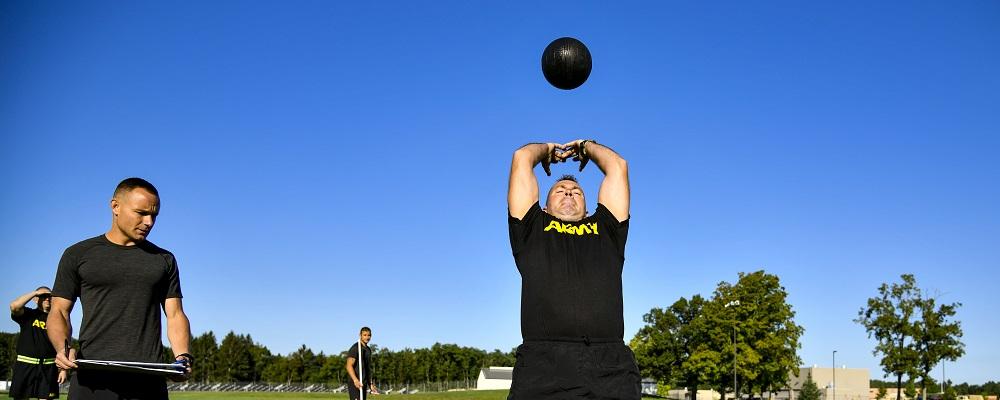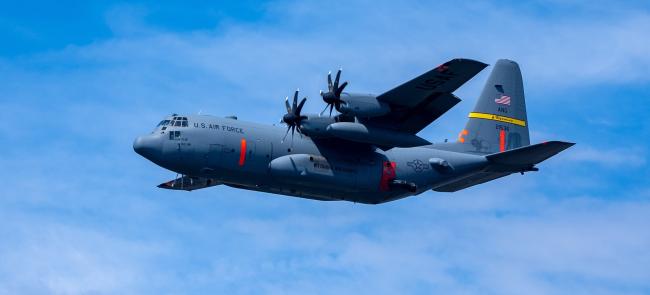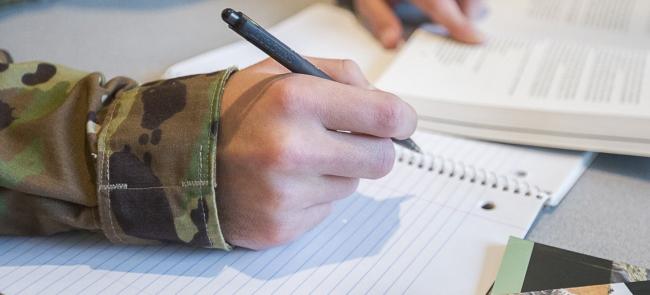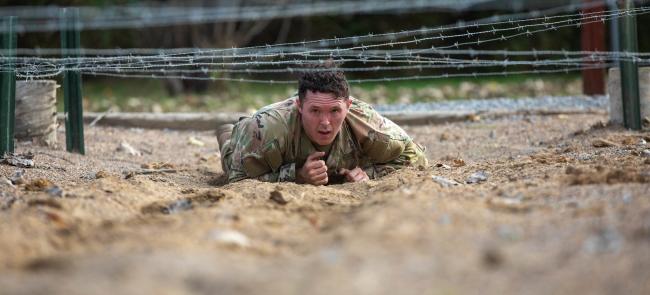
The Army has laid out an alternative to the new Army Combat Fitness Test for soldiers who are on permanent profile due to physical limitations.
A memo dated last month from the Office of the Army Surgeon General outlines the requirements for such an alternative. All soldiers with a permanent profile were to begin participating in the ACFT last month, when the test was introduced Army-wide as part of a year-long introduction. Those soldiers are permitted to take a modified version of the test.
The ACFT consists of six events: a deadlift, standing power throw, arm-extension push-up, spring-drag-carry, leg tuck and two-mile run.
But soldiers with limitations that prevent them from taking that test may instead take part in a modified test that includes one-to-six of the events. Those on permanent profile who are unable to participate in the two-mile run can also opt into an alternate aerobic event. Those alternate events include a 5,000-meter row, 15,000-meter bike or 1,000-meter swim. There will be no walk alternate aerobic event, according to the memo.
Soldiers who are on a temporary profile are not permitted to take a modified ACFT. Instead, they must wait until they can perform the full test.
Profiling officers, which include primary care physicians, battalion physician assistants or equivalent medical professionals, will be tasked with evaluating soldiers on permanent profile to determine their ability to perform, and level of participation in, the ACFT or modified ACFT.
Soldiers are to work with medical professionals to determine which events they can perform and which would aggravate their medical condition.
Army leaders have continued to modify ACFT requirements as it has been introduced across the force in the past two months. The test is expected to become the Army’s official physical fitness test of record next year.
In the Guard, concern over the availability of equipment and time needed to train for the test persists, with some units still waiting for the ability to conduct the test.
The ACFT is replacing the three-event Army Physical Fitness Test, which had been largely unchanged for decades. While the APFT could be conducted without any equipment, the ACFT requires a hexagon barbell, weight plates, barbell collars/springs, nylon sleds, a rubber medicine ball and kettlebell weights.
Army officials have said they plan on purchasing $70 million worth of equipment, with each battalion receiving 16 sets of gear.
In the next year, Guardsmen are expected to take one diagnostic ACFT, while their active-component counterparts will take two diagnostic tests. The ACFT has also been introduced as a graduation requirement for all initial-entry schools, officer and enlisted.
Ultimately, the ACFT is meant to improve individual readiness, reduce preventable injuries and enhance mental stamina and toughness, officials have said. It is part of a larger effort to transform the Army’s fitness culture that will also include the introduction of conditioning coaches, physical therapists and nutritionists at the battalion level.











